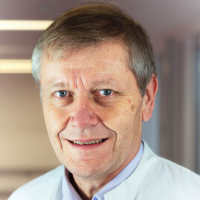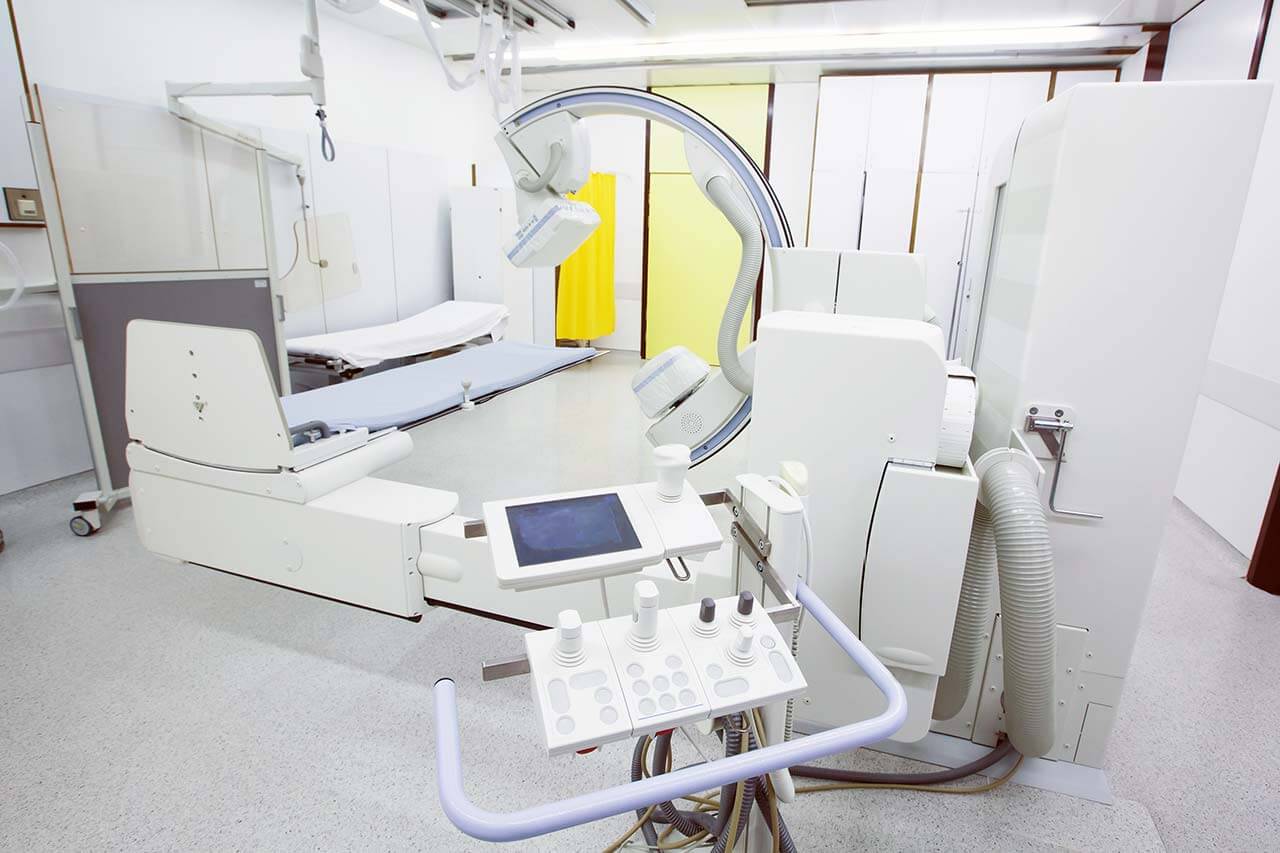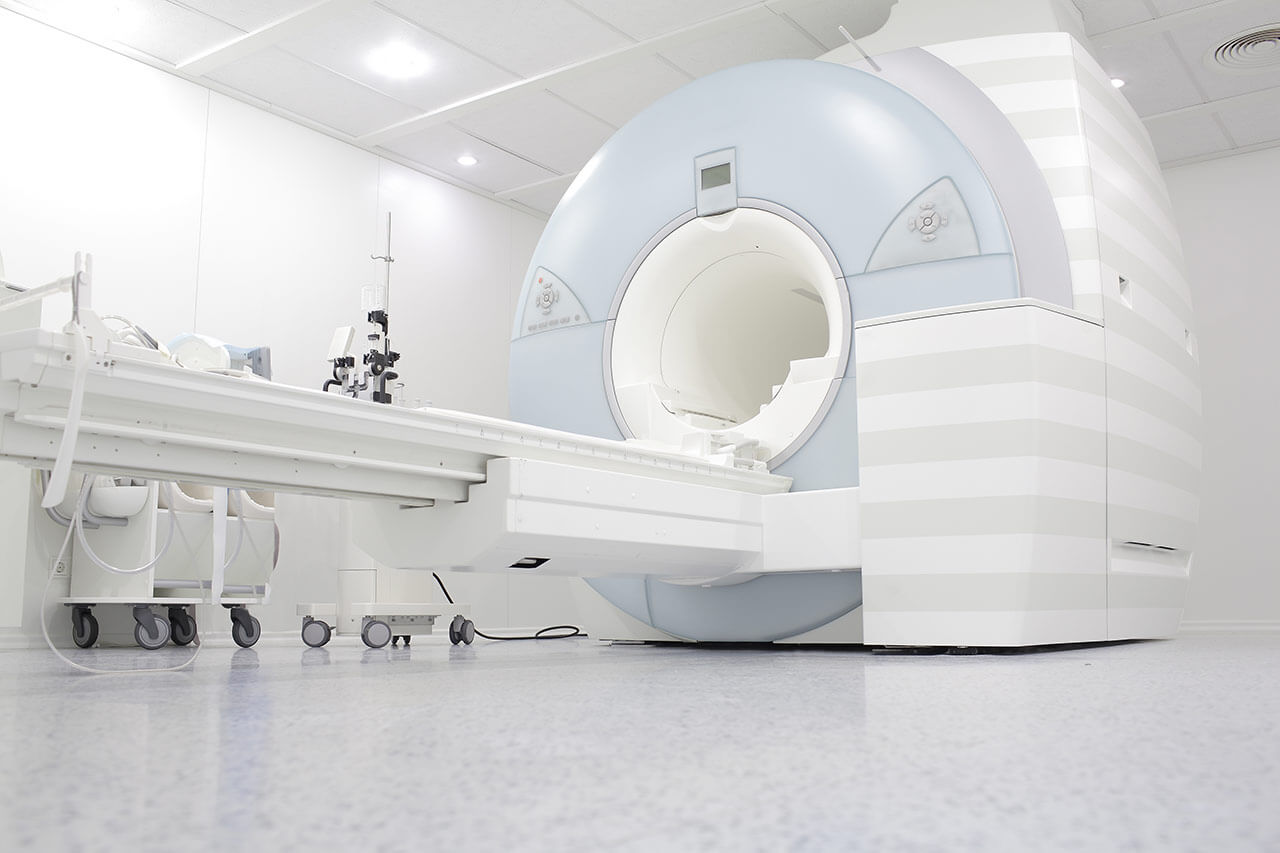
The program includes:
- Initial presentation in the clinic
- clinical history taking
- physical examination
- review of medical records
- laboratory tests:
- complete blood count
- general urine analysis
- biochemical analysis of blood
- TSH-basal, fT3, fT4
- indicators of inflammation (CRP, ESR)
- indicators blood coagulation
- abdominal ultrasound
- CT/MRI abdomen
- preoperative care
- Splenectomy
- symptomatic treatment
- control examinations
- the cost of essential medicines and materials
- nursing services
- nutrition recommendations
- full hospital accommodation
- explanation of future recommendations
Required documents
- Medical records
- Complete blood count (if available)
Service
You may also book:
 BookingHealth Price from:
BookingHealth Price from:
About the department
The Department of General, Abdominal and Transplant Surgery at the Hannover Medical School offers the full range of services in these medical fields and provides high-quality treatment for various surgical diseases. The key areas of the department's activities include surgical interventions on the esophagus, stomach, liver, biliary tract, gallbladder, pancreas, small and large intestine, as well as endocrine organs. The department's doctors also specialize in the surgical treatment of hernias. A special place in the clinical practice is given to organ transplantation – liver, kidney and pancreas. The medical facility also successfully uses sparing minimally invasive surgical techniques and the innovative da Vinci surgical system. The department's doctors have long experience and outstanding qualifications, which, in combination with high-tech equipment, can work wonders. The operating rooms correspond to the very latest standards of hygiene and safety, so patients can be sure of a favorable outcome of the surgical treatment. The department is headed by Prof. Dr. med. Jürgen Klempnauer.
The department has state-of-the-art equipment, advanced computer systems, the da Vinci Xi surgical system, surgical technologies for a wide range of minimally invasive interventions, which have many advantages and are more sparing than open interventions.
As of today, robotic interventions are increasingly performed in the department. During the operation, the surgeon is sitting at a special control panel, which he uses to set each surgical manipulation and control the actions of the robot. The image of the surgical field is transmitted to a large screen at multiple zoom, so that the surgeon can clearly see the smallest anatomical structures. The surgical robot is equipped with four slave manipulators, with the help of which the operation is performed. The innovative technology provides more precise movements of tiny instruments in the robot arms, as well as smooth rotation (360°) of the instruments in space. The main advantage of robot-assisted surgery is impeccable precision, due to which damage to healthy tissues and nerve fibers is almost excluded. The department's surgeons perform robotic surgeries for diseases of the gallbladder (removal), gastroesophageal reflux disease, colorectal cancer, diverticular disease, chronic inflammatory bowel disease (ulcerative colitis and Crohn's disease), liver and pancreatic tumors, as well as benign and malignant tumors of the stomach and esophagus.
The department has achieved outstanding results in organ transplantation and is the largest Transplantation Center of this kind in Germany. About 140 liver transplantations, 200 kidney transplantations and 20 pancreas transplantations are performed here every year, which testifies to the high professionalism of the medical team and excellent medical care. At the stages of preparation for transplantation and postoperative care, experienced nephrologists, gastroenterologists, immunologists and other doctors are involved in the therapeutic process. They carry out all the necessary therapeutic measures to provide the patient with successful outcome of the operation and organ engraftment.
The department's range of medical services includes:
- Da Vinci robot-assisted surgery
- Esophageal surgery
- Treatment of esophageal cancer
- Treatment of benign esophageal tumors
- Treatment of gastroesophageal reflux disease
- Treatment of Zenker's diverticulum
- Gastric surgery
- Gastric resection (gastrectomy)
- Lymphadenectomy
- Splenectomy and multivisceral interventions (especially in progressive upper stomach tumors, when the tumor affects the entire stomach)
- Reconstructive interventions after gastrectomy
- Liver surgery
- Liver resection
- Liver transplantation
- Multimodal therapy methods (for example, preoperative chemoembolization with follow-up resection)
- Atypical liver resection
- Biliary tract and gallbladder surgery
- Pancreatic surgery
- Small and large intestine surgery
- Treatment of malignant tumors
- Treatment of inflammatory bowel disease (ulcerative colitis and Crohn's disease)
- Minimally invasive surgery
- Esophageal surgery (malignant and benign esophageal tumors, esophageal diverticulum, achalasia)
- Gastric surgery (malignant and benign stomach tumors, surgical treatment of reflux disease, diaphragmatic hernia)
- Large intestine surgery (proctocolectomy, hemicolectomy, sigmoid colon resection) and rectum (anterior rectal resection)
- Adrenal surgery (adrenalectomy)
- Liver surgery (liver resection, cyst removal)
- Abdominal wall surgery (treatment of inguinal, incisional hernias)
- Laparoscopic appendectomy
- Diagnostic laparoscopy for histological examination
- Laparoscopic implantation of feeding tubes
- Laparoscopic placement of diaphragm stimulators
- Endocrine surgery
- Thyroid surgery
- Parathyroid surgery
- Adrenal surgery
- Hernia repair surgery
- Multivisceral resections
- Transplant surgery (liver, kidney and pancreas transplantation)
- Other types of surgical interventions
Curriculum vitae
Higher Education and Professional Career
- Since 1999 Head of the Department of General, Abdominal and Transplant Surgery at the Hannover Medical School.
- 1996 - 1999 Head of the Department of Surgery, University Hospital Knappschaft, Bochum-Langendeer, Ruhr University in Bochum.
- 1988 - 1996 Senior Physician of the Department of General, Abdominal and Transplant Surgery at the Hannover Medical School (Head: Prof. Dr. med. R. Pichlmayr).
- 1984 - 1987 Research Assistant, Department of General, Abdominal and Transplant Surgery at the Hannover Medical School (Head: Prof. Dr. med. R. Pichlmayr).
- 1983 - 1984 Military Service Doctor, Bundeswehr Clinic Hamburg, Department of Surgery (Chief Physician: Senior Physician, Dr. med. S. Span).
- 1980 - 1983 Research Assistant, Department of General, Abdominal and Transplant Surgery at the Hannover Medical School (Head: Prof. Dr. med. R. Pichlmayr).
- 1979 - 1980 Scholarship of the German Academic Exchange Service, Cambridge University, Great Britain, Clinical School, Department of Surgery, Head: Prof., Sir R. Y. Calne.
- 1979 Admission to medical practice.
- 1973 - 1979 Study of Medicine at the Eberhard Karls University of Tuebingen.
Doctoral Studies, Habilitation, Qualifications
- 1996 Specialization in Abdominal Surgery.
- 1993 Appointed as Visiting Professor.
- 1989 Specialization in Vascular Surgery.
- 1988 Habilitation: "Endocrine function and immunogenicity of vascularized pancreas transplants in rats depending on surgical technique".
- 1987 Board certification in Surgery.
- 1979 Doctoral Degree: "Comparison of the metabolic effects of insulin after intraportal and intravenous administration in dogs after the total pancreas removal", Department of Surgery, University Hospital Tübingen (Prof. Dr. med. H. Geisbe).
Memberships
- Society of Transplantology.
- German Society of Transplantology.
- German Society of Surgery.
- German Society of General and Abdominal Surgery.
- Association of Northwestern German Surgeons.
- Association of German Surgeons.
Photo of the doctor: (c) Medizinische Hochschule Hannover (MHH)
About hospital
The Hannover Medical School has the status of a leading German medical facility. The advanced medical technologies, highly qualified specialists, as well as productive research activities form a solid basis for top-class medical service of the world standard. The hospital is proud of its outstanding achievements in the treatment of cancer, diseases of the lung, heart, kidney, liver and metabolic disorders, as well as surgical diseases.
The medical facility diagnoses and treats more than 63,000 inpatients and about 470,000 outpatients annally. These indicators are growing steadily, which indicates the reputability and prestige of the hospital in the European medical arena.
For decades, the hospital has been a pioneer in transplantation medicine and is one of the leading centers of this specialization in the world. It performs about 400 transplantations of solid organs annually. Also, the hospital has performed over 130 bone marrow transplantations. In addition, the hospital ranks among the world leaders in cochlear implantation for the treatment of hearing loss.
Much attention is paid to interdisciplinary cooperation. Since 2016, the hospital has the largest certified Cancer Center in the Federal State of Lower Saxony, which provides comprehensive, multidisciplinary medical care in accordance with the standardized protocols of cancer societies.
The specialists of the hospital offer patients not only modern treatment of the highest quality, but also attentive care, sympathetic attitude to the patient's problems and understanding of his individual needs. Thus, the patient can be sure that his health is in the safe hands of highly qualified doctors.
Photo: (c) depositphotos
Accommodation in hospital
Patients rooms
The patients of the Hannover Medical School live in comfortable and cozy rooms. Each patent room has an ensuite bathroom with shower and toilet. A standard patient room includes an automatically adjustable bed with an orthopedic mattress, a bedside table, a wardrobe, a TV and a telephone. You can use TV, telephone and Internet using a special chip card, which can be purchased at self-service terminals or ordered at the service counter. The hospital allows the patients to use mobile phones, with the exception of intensive care units, some departments and diagnostic rooms.
If desired, the patient can stay in an enhanced-comfort room. Such rooms are distinguished by a more sophisticated design, and are additionally equipped with upholstered furniture, a safe for storing valuables and a mini fridge.
Meals and Menus
The patient and the accompanying person are offered delicious and balanced three meals a day. Breakfast and dinner are served buffet style and lunch can be chosen from three set menus. All dishes are prepared by professional chefs using the freshest ingredients available in the region.
If you are on a specific diet for some reason, you will be offered an individual menu. Please inform the medical staff about your dietary preferences prior to the treatment.
Further details
Standard rooms include:
Religion
There is a chapel on the territory of the hospital, where Christian and Catholic services are regularly held. The hospital provides a prayer room for followers of Islam, which is open for visits 24 hours a day.
Religious services can also be provided upon request.
Accompanying person
During an inpatient program, an accompanying person can stay with you in the patient room or in a hotel of your choice.
Hotel
During an outpatient program, you can stay in a hotel of your choice. The managers will help you choose the most suitable options.




